Inspired to set new goals while remaining committed to sustaining its ongoing efforts to protect coastal and marine resources, Florida Sea Grant (FSG) is proud to welcome the 2025 FSG-Guy Harvey Fellows.
The Guy Harvey Foundation (GHF) works with local, national, and international organizations to conduct scientific research and fund affiliated researchers committed to ocean conservation. One of GHF’s initiatives is to recognize graduate students and candidates in graduate programs across Florida colleges and universities who conduct research aimed at supporting the sustainable management of marine fish.
In order to achieve this, the FSG-Guy Harvey Fellowship, formerly the Guy Harvey Scholarship Award, was created in partnership with FSG and the GHF to bolster graduate-level research in this area. Each of the eight fellows will receive $5,000 to support their research initiatives and promote efforts to protect coastal and marine habitats and species. Additionally, students will work with the FSG communication team to enhance their communication skills and share their progress.
The 2025 Florida Sea Grant Guy Harvey Fellows are:
- Lillian Bradshaw, Florida State University
- Christopher Crowder, University of Central Florida
- Morgan Jarrett and Rainer Moy-Huwyler, Florida International University
- Dakota Lewis and Kelli O’Donnell, University of Florida
- Hallie Repeta, University of South Florida
- Emily Yeager, University of Miami’s Rosenstiel School of Marine, Atmospheric and Earth Science
Since 2010, Florida Sea Grant and the Guy Harvey Foundation have awarded $482,700 in support of scholarships and fellowships for 98 students across 12 Florida universities and colleges.
“It has been encouraging to work with the Guy Harvey Foundation and envision the next phase of supporting student growth and development,” said Dr. Sherry Larkin, Director of Florida Sea Grant College Program. “By connecting them with stakeholders and allowing them to share their research, these experiences will foster the next generation of marine scientists that will ensure the quality of our valuable coastal marine habitats.”
Aside from financial support, each fellow also receives a certificate personally designed and signed by world-renowned marine wildlife artist, conservationist and GHF Founder/Chair Emeritus, Dr. Guy Harvey.
“The Guy Harvey Foundation has a long history of providing funding to student researchers, done in partnership with Florida Sea Grant,” said Dr. Harvey. “The FSG Guy Harvey Fellowship program has enabled us to better promote these bright, young students and educate the public about the critical research work that they are doing.”
Applications for the 2025 FSG-Guy Harvey Fellowship will open later this year. Stay updated on eligibility criteria and deadlines at www.flseagrant.org/student-opportunities/ or reach out to Florida Sea Grant Student Programs Coordinator, Cassandra Sexson, at [email protected].
“The FSG Guy Harvey Fellowship program has enabled us to better promote these bright, young students and educate the public about the critical research work that they are doing.”
Dr. Guy Harvey
Meet the 2025 Guy Harvey Fellowship Recipients
 Lillian Bradshaw is a Ph.D. student from St. Louis, Missouri, pursuing a doctorate in ecology and evolution at Florida State University’s Department of Biological Sciences. Her research focuses on studying the spatial distribution of human activity in the Florida Keys National Marine Sanctuary and how it influences ocean-floor organisms and fishable biomass. Bradshaw’s inspiration stems from her interdisciplinary academic portfolio and adventures canoeing down rivers, backpacking in national forests, and hiking through parks. This fellowship will help support her objective to contribute data on the ecological and social relationship between the sanctuary and humans, an increasingly important dynamic for ecosystems grappling with climate change, as well as her goal to better understand the relationship between humans and organisms in the sanctuary while providing insights on the spillover from protected zones. If successful, these findings could improve ecosystem resilience and management decisions in light of climate change.
Lillian Bradshaw is a Ph.D. student from St. Louis, Missouri, pursuing a doctorate in ecology and evolution at Florida State University’s Department of Biological Sciences. Her research focuses on studying the spatial distribution of human activity in the Florida Keys National Marine Sanctuary and how it influences ocean-floor organisms and fishable biomass. Bradshaw’s inspiration stems from her interdisciplinary academic portfolio and adventures canoeing down rivers, backpacking in national forests, and hiking through parks. This fellowship will help support her objective to contribute data on the ecological and social relationship between the sanctuary and humans, an increasingly important dynamic for ecosystems grappling with climate change, as well as her goal to better understand the relationship between humans and organisms in the sanctuary while providing insights on the spillover from protected zones. If successful, these findings could improve ecosystem resilience and management decisions in light of climate change.
“This fellowship will allow me to connect and interact with other researchers working to protect Florida’s ecosystems,” Bradshaw said. “I’m looking forward to engaging with other fellows and Sea Grant staff, learning about a wide range of topics, and having a platform to share my work with a broader audience.”
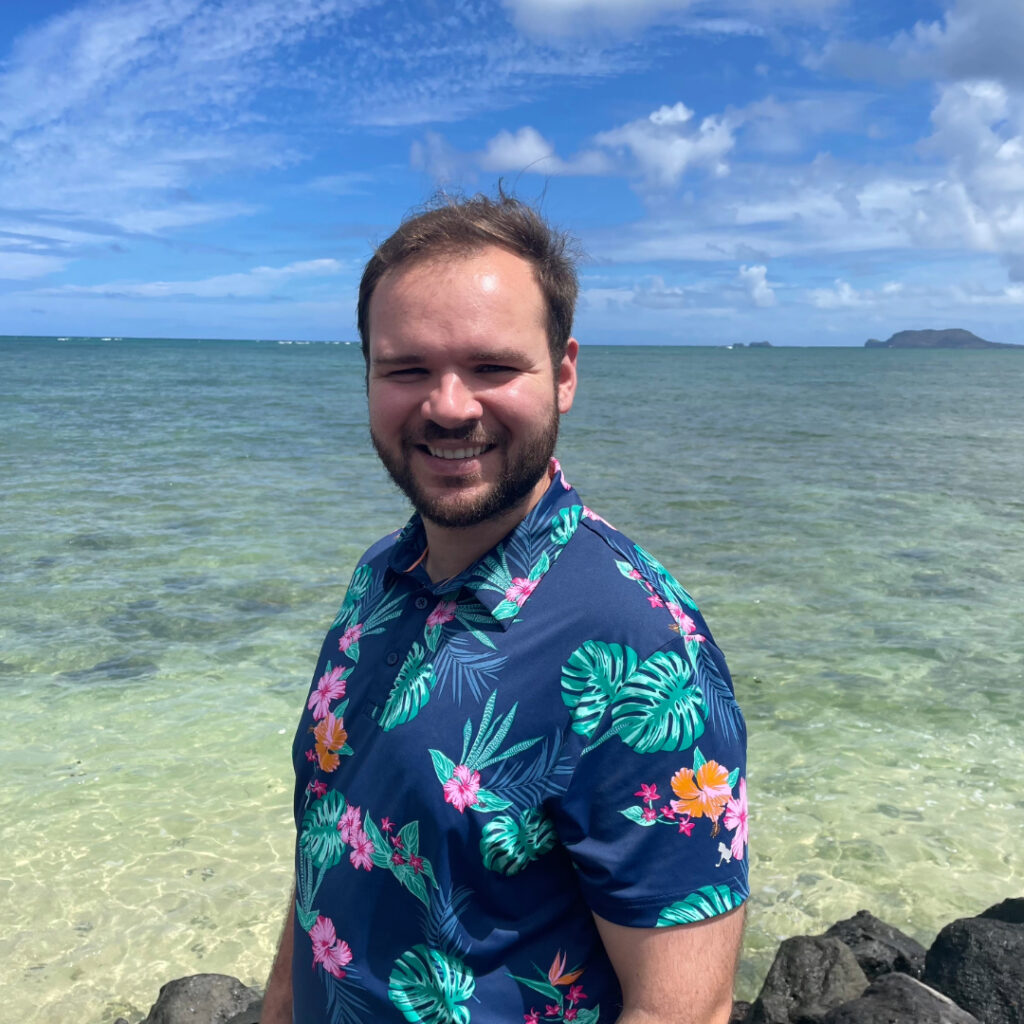 Christopher Crowder from Greenwood, Indiana, is a Ph.D. candidate in integrative and conservation biology at the University of Central Florida. He joined Florida Sea Grant as a 2024 Guy Harvey Fellow and graduate research fellow for his work in Dr. Geoffrey Cook’s Marine Ecology and Conservation Lab in UCF’s Biology Department. In 2025, Crowder will continue to build ecological Bayesian-statistical models using spatial fish and habitat data from theFisheries-Independent Modeling Program and habitat maps from Tampa Bay and the Indian River Lagoon. His models will clarify which residual factors influence fish presence and abundance, specifically in predator-prey dynamics, improve fish community sampling designs, and offer future ecosystem projections. This fellowship allows him to blend his scientific interests in sustainability, statistics, and fish management with a service-oriented career.
Christopher Crowder from Greenwood, Indiana, is a Ph.D. candidate in integrative and conservation biology at the University of Central Florida. He joined Florida Sea Grant as a 2024 Guy Harvey Fellow and graduate research fellow for his work in Dr. Geoffrey Cook’s Marine Ecology and Conservation Lab in UCF’s Biology Department. In 2025, Crowder will continue to build ecological Bayesian-statistical models using spatial fish and habitat data from theFisheries-Independent Modeling Program and habitat maps from Tampa Bay and the Indian River Lagoon. His models will clarify which residual factors influence fish presence and abundance, specifically in predator-prey dynamics, improve fish community sampling designs, and offer future ecosystem projections. This fellowship allows him to blend his scientific interests in sustainability, statistics, and fish management with a service-oriented career.
“My goal is to lead projects that solve problems in coastal and fish ecology that directly impact vital ecosystems and the productivity of Florida’s fishery,” said Crowder. “I hope to engage with communities that may experience loss of income due to declining access or quality of ecosystem services, as well as energize students and community members through education.”
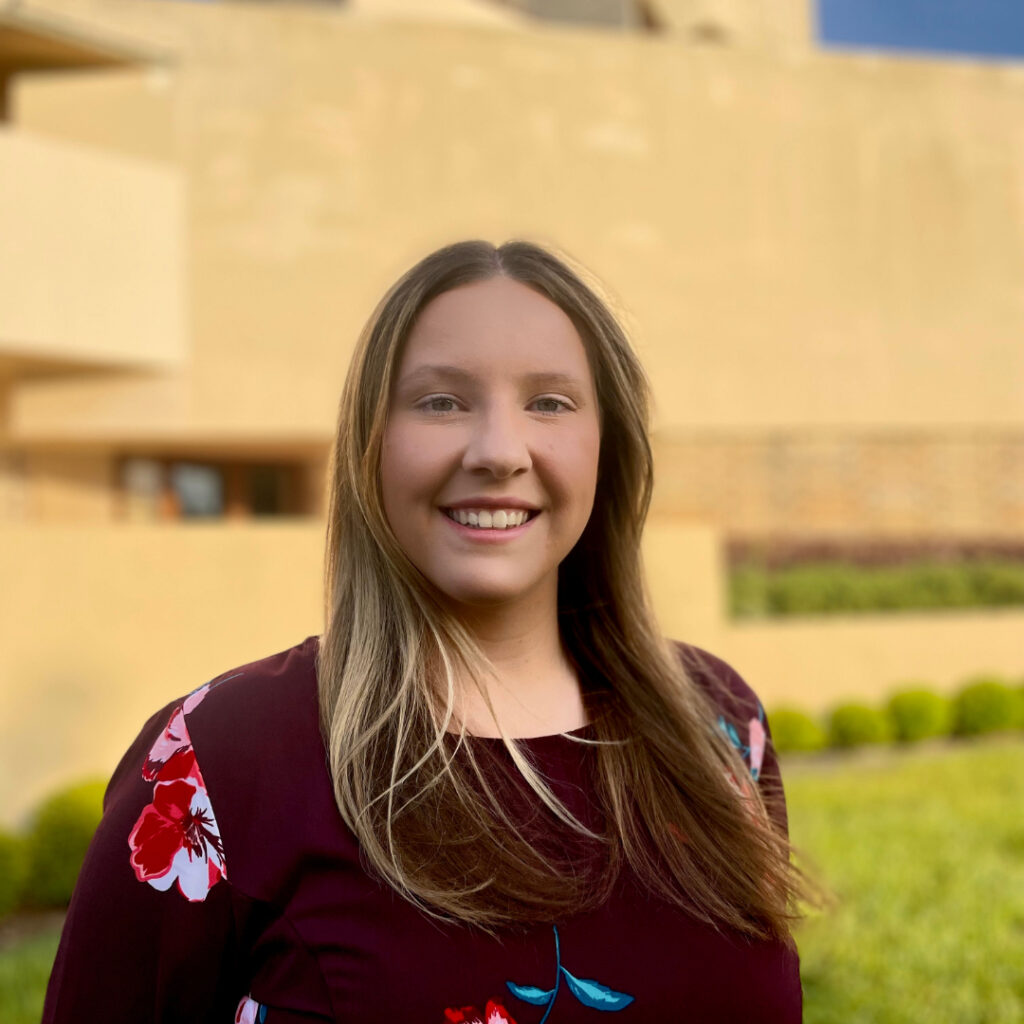 Morgan Jarrett is a Mantua, New Jersey native and a biology Ph.D. candidate at Florida International University and became curious about crustaceans following an internship on acidification and crab larvae. Within the Department of Biological Sciences, she studies the behavioral and physiological responses of decapod crustaceans under environmental stress, specifically deoxygenation. Jarrett’s research aims to test if the gill-oxygen limitation theory, historically only examined in fishes, can be applied to crustaceans and if so, to what extent. The application of this theory to decapods could be a revolutionary discovery that links how environmental changes could impact key fisheries species in the face of future climate change.
Morgan Jarrett is a Mantua, New Jersey native and a biology Ph.D. candidate at Florida International University and became curious about crustaceans following an internship on acidification and crab larvae. Within the Department of Biological Sciences, she studies the behavioral and physiological responses of decapod crustaceans under environmental stress, specifically deoxygenation. Jarrett’s research aims to test if the gill-oxygen limitation theory, historically only examined in fishes, can be applied to crustaceans and if so, to what extent. The application of this theory to decapods could be a revolutionary discovery that links how environmental changes could impact key fisheries species in the face of future climate change.
“As an FSG Guy Harvey Fellow, I can explore new research interests with financial support and open doors for collaboration,” said Jarrett. “I am looking forward to meeting and connecting with other fellows, past and present, to hear about their research and experiences and bounce ideas off of.”
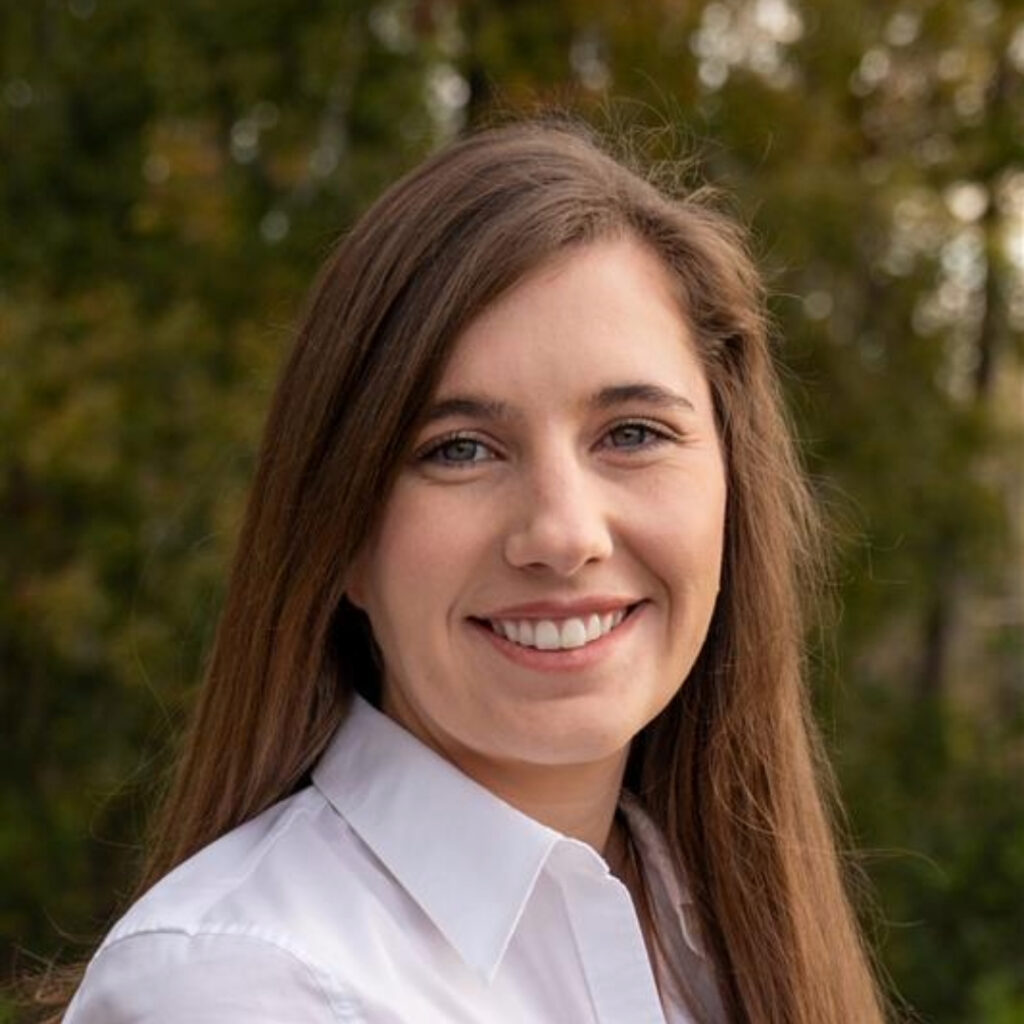
Dakota Lewis is a Ph.D. candidate at the University of Florida’s School of Natural Resources and the Environment. As an Orlando native, Lewis has witnessed the degradation of ecosystems around her due to heat waves and other disturbances. Her research focuses on how these disturbances, positive and negative, impact fish communities in Florida Bay, specifically in the adult populations along the Florida Keys Reef Tract. Her dissertation will translate mathematical modeling and field data into predictions of fish community structures and functions. Ultimately, her work aims to help guide effective ecosystem management strategies that balance sustainability with marine biodiversity.
“Following analyses of data generated with support from the FSG Guy Harvey Fellowship will enable me to disseminate my findings broadly in open access journals and by presenting at scientific conferences at a pivotal stage of my PhD,” said Lewis. “Support from this fellowship will allow me to finally process all remaining samples from my dissertation research and complete my research in a timely fashion.”
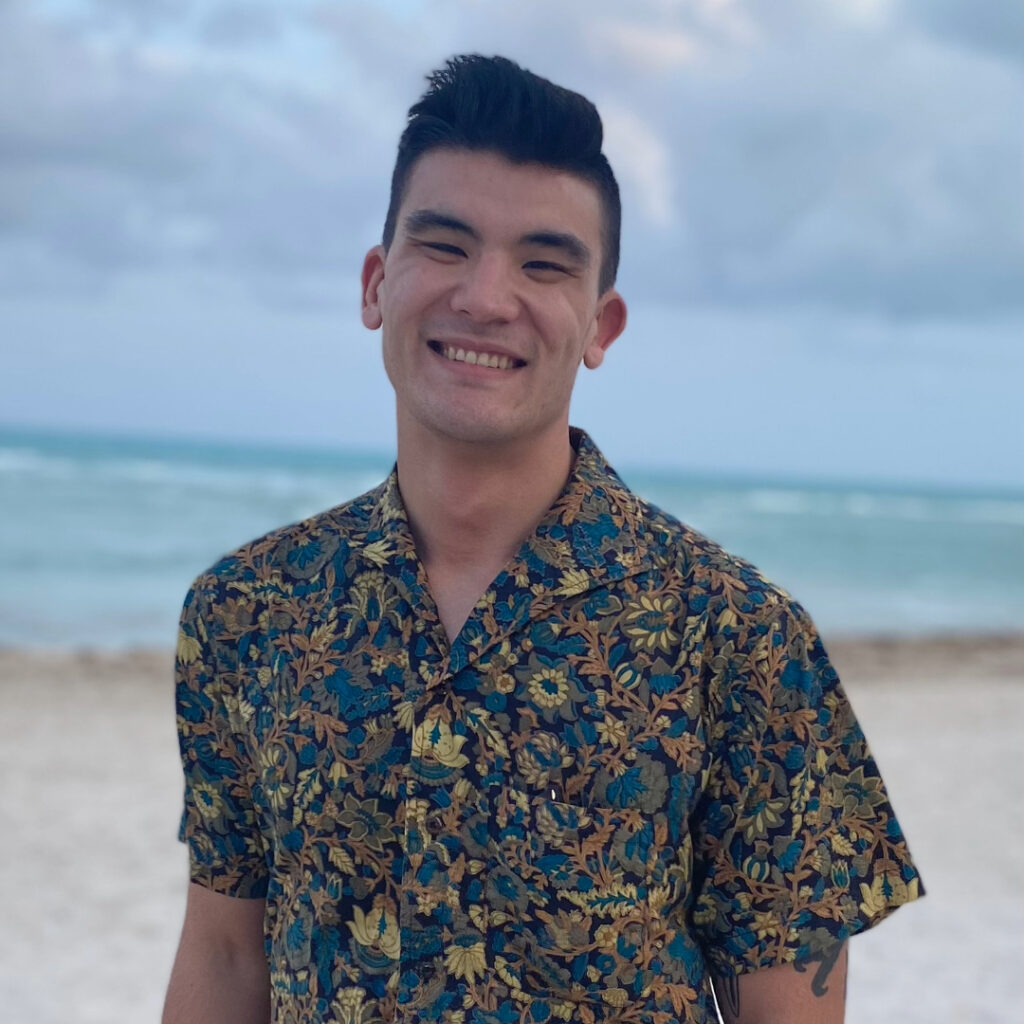 Rainer Moy-Huwyler from Stamford, Connecticut, is a Ph.D. biology student at Florida International University’s Department of Biological Sciences. His research focuses on the energy expenditures of fish in the Florida Keys National Marine Sanctuary under current and future climate scenarios. This fellowship will help fund video camera equipment that is required to complete the final chapter of Moy-Huwyler’s dissertation, which expects to connect the behaviors associated with fear in coral reef fishes with their respective energetic costs. This will generate novel data on how rising temperatures and management decisions affect fish and coral reefs from a metabolic perspective. Eventually, Moy-Huwyler hopes to bring his results to publication and gain feedback at conferences, potentially applying his methods to other ecosystems.
Rainer Moy-Huwyler from Stamford, Connecticut, is a Ph.D. biology student at Florida International University’s Department of Biological Sciences. His research focuses on the energy expenditures of fish in the Florida Keys National Marine Sanctuary under current and future climate scenarios. This fellowship will help fund video camera equipment that is required to complete the final chapter of Moy-Huwyler’s dissertation, which expects to connect the behaviors associated with fear in coral reef fishes with their respective energetic costs. This will generate novel data on how rising temperatures and management decisions affect fish and coral reefs from a metabolic perspective. Eventually, Moy-Huwyler hopes to bring his results to publication and gain feedback at conferences, potentially applying his methods to other ecosystems.
“This fellowship funds the final chapter of my dissertation, which will connect the behaviors associated with fear in coral reef fishes with their respective energetic costs,” he said. “It’s a privilege to work in such a vibrant and idyllic study system. I hope that my field days are full of clear water and lots of fish to film!”
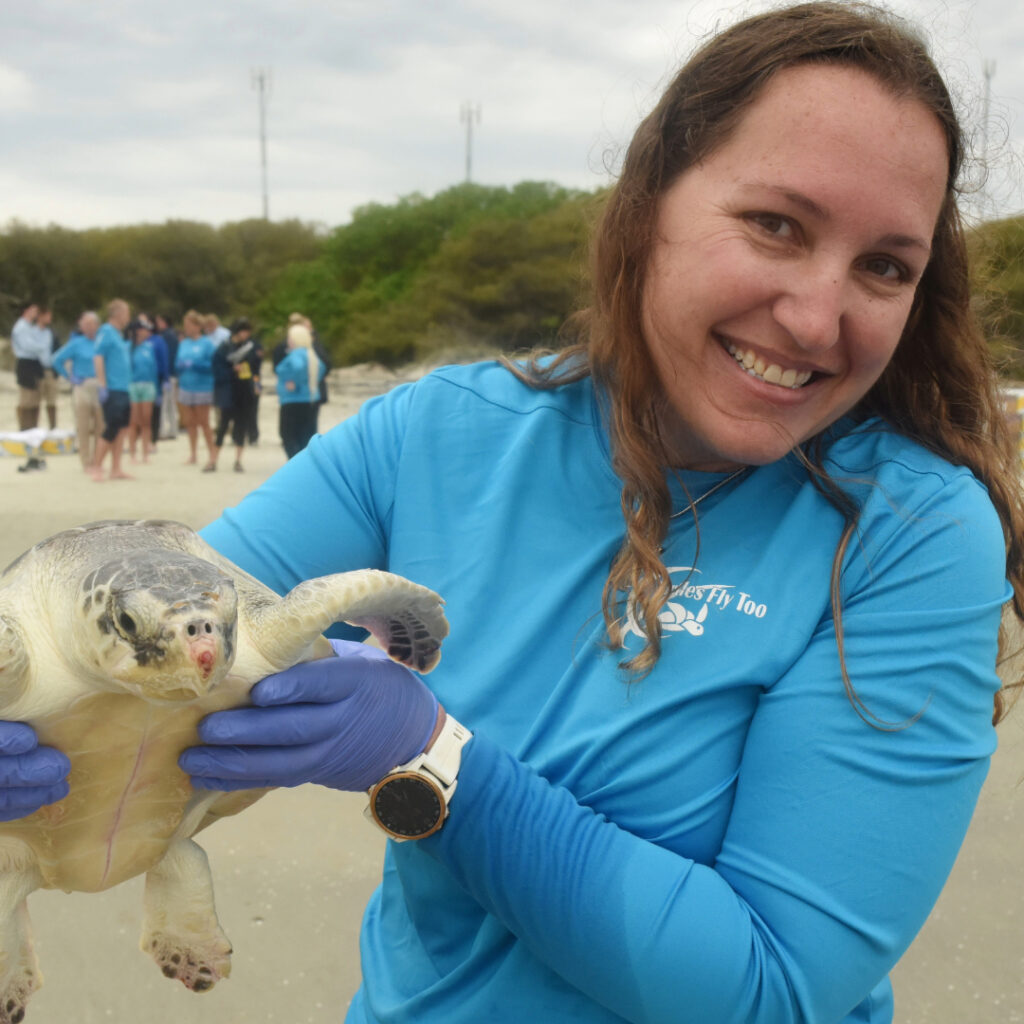 Kelli O’Donnell from Clearwater, Florida, originally joined Florida Sea Grant as an Aylesworth Scholar for her masters’ research before continuing her studies as a Ph.D. student at the University of Florida. She was selected once again as an Aylesworth Scholar as she enters her second year as a Guy Harvey Fellow. While O’Donnell’s degree concentrates on natural resource policy and administration, her research centers on coral outplanting in the Florida Keys National Marine Sanctuary. After placing coral fragments in cool, deep waters, O’Donnell monitors and samples the outplants to observe their performance across the light and temperature gradient. The expected results from her discoveries are to improve conservation efforts and guide best practices for coral reef restoration, a pressing need as ocean temperatures rise.
Kelli O’Donnell from Clearwater, Florida, originally joined Florida Sea Grant as an Aylesworth Scholar for her masters’ research before continuing her studies as a Ph.D. student at the University of Florida. She was selected once again as an Aylesworth Scholar as she enters her second year as a Guy Harvey Fellow. While O’Donnell’s degree concentrates on natural resource policy and administration, her research centers on coral outplanting in the Florida Keys National Marine Sanctuary. After placing coral fragments in cool, deep waters, O’Donnell monitors and samples the outplants to observe their performance across the light and temperature gradient. The expected results from her discoveries are to improve conservation efforts and guide best practices for coral reef restoration, a pressing need as ocean temperatures rise.
“The Guy Harvey Fellowship and Aylesworth Foundation support my work in different ways,” said O’Donnell. “One is more representative of the fishermen and their belief my research will help ensure the sustainability of the renewable marine resources they depend on, while the other supports the conservation part of my work. The support from this fellowship closely aligns with my career and PhD goals that advocate for sustainable efforts.”
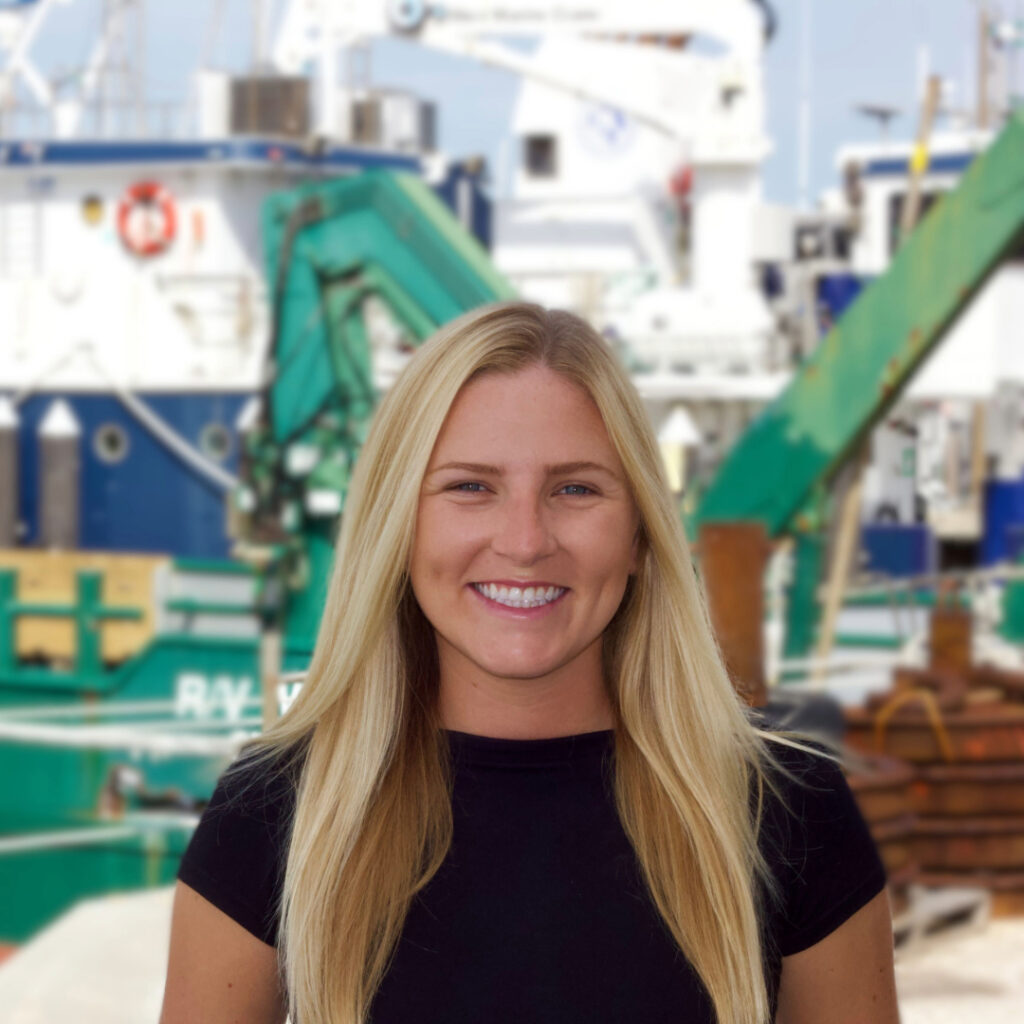 Hallie Repeta is a doctorate student from Portland, Maine, pursuing a Ph.D. from the University of South Florida’s College of Marine Science. While studying marine resource management, she will be researching the ecological connectivity and resilience of forage fish populations on the West Florida Shelf. The FSG Guy Harvey Fellowship will support Repeta’s research, which uses ecological modeling and network analysis to observe the fish’s responses to environmental stressors, by providing access to resources and professional development opportunities and allowing her to build meaningful connections within the Florida fisheries scientific community. Because forage fish are vital to the ecosystem’s function and stability, her findings can indicate the area’s overall health and adaptability to climate change perturbations.
Hallie Repeta is a doctorate student from Portland, Maine, pursuing a Ph.D. from the University of South Florida’s College of Marine Science. While studying marine resource management, she will be researching the ecological connectivity and resilience of forage fish populations on the West Florida Shelf. The FSG Guy Harvey Fellowship will support Repeta’s research, which uses ecological modeling and network analysis to observe the fish’s responses to environmental stressors, by providing access to resources and professional development opportunities and allowing her to build meaningful connections within the Florida fisheries scientific community. Because forage fish are vital to the ecosystem’s function and stability, her findings can indicate the area’s overall health and adaptability to climate change perturbations.
“I am excited to join the Sea Grant network, connect with other Guy Harvey fellows, and learn about the diverse and innovative research being conducted within Florida’s marine fisheries field,” said Repeta.“This fellowship will support my research by providing access to resources and professional development opportunities, and allow me to build meaningful connections within the Florida fisheries scientific community.”
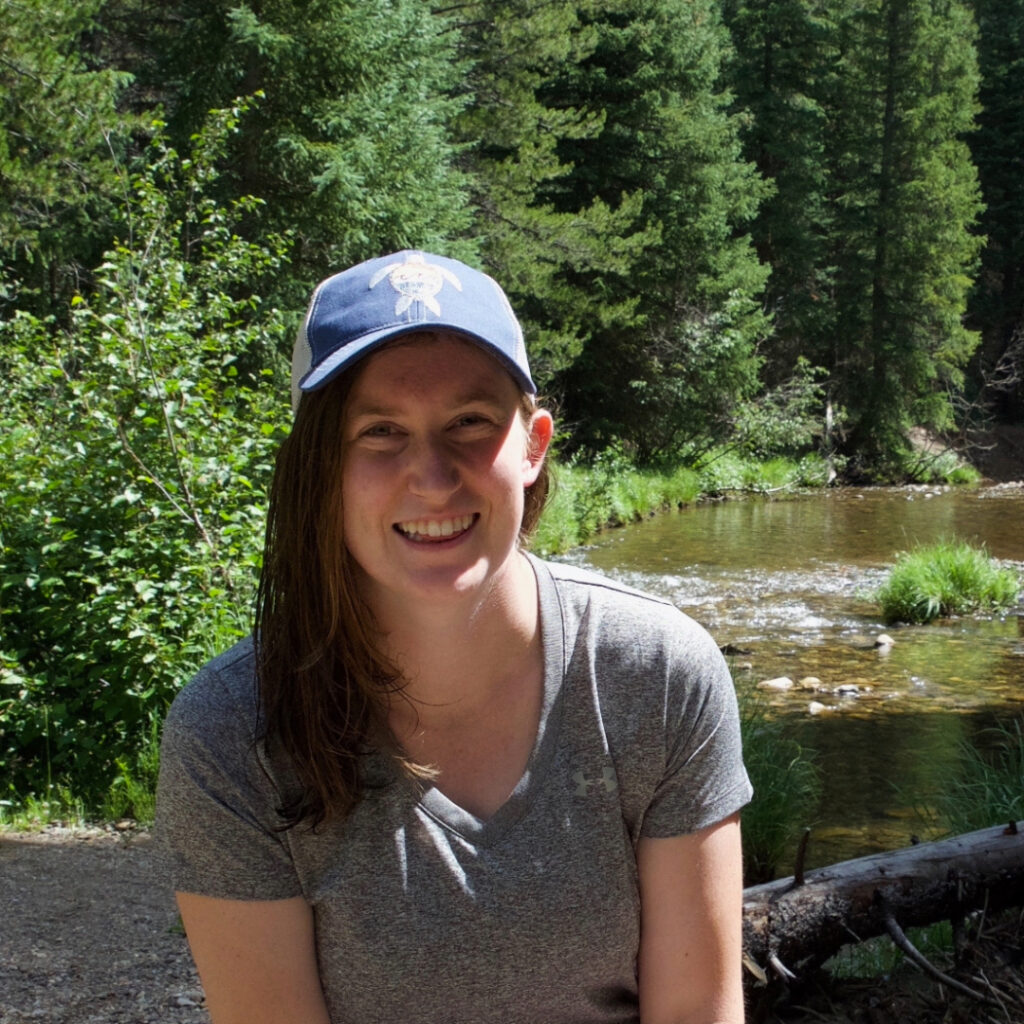 Emily Yeager from Pittsfield, Massachusetts, is pursuing a Ph.D. in environmental science and policy at the University of Miami’s Rosenstiel School of Marine, Atmospheric and Earth Science. The focus of Yeager’s research on Great Hammerhead sharks and their physiological response to capture and release stress. A critically endangered species, Great Hammerheads are facing habitat loss, a population decline and unique susceptibility to fishing pressures in commercial and recreational bycatch hotspots. Another purpose of Yeager’s research will be to unveil why this species has a high at-vessel and post-release mortality rate by analyzing changes in their plasma and gill urea concentration across various age groups. Her conclusions will contextualize the physiological impacts of fishing on vulnerable populations as they experience rising temperatures and habitat loss.
Emily Yeager from Pittsfield, Massachusetts, is pursuing a Ph.D. in environmental science and policy at the University of Miami’s Rosenstiel School of Marine, Atmospheric and Earth Science. The focus of Yeager’s research on Great Hammerhead sharks and their physiological response to capture and release stress. A critically endangered species, Great Hammerheads are facing habitat loss, a population decline and unique susceptibility to fishing pressures in commercial and recreational bycatch hotspots. Another purpose of Yeager’s research will be to unveil why this species has a high at-vessel and post-release mortality rate by analyzing changes in their plasma and gill urea concentration across various age groups. Her conclusions will contextualize the physiological impacts of fishing on vulnerable populations as they experience rising temperatures and habitat loss.
“As a conservation ecologist with a molecular biology background, I’m particularly excited about the opportunity to complete this project on Great Hammerhead’s physiological response to capture and release stress,” said Yeager. “The Guy Harvey Fellowship will allow me to continue to develop and implement creative ways to effectively communicate my research and its importance to diverse audiences and stakeholders throughout Florida.”
About Guy Harvey:
Guy Harvey is a unique blend of artist, scientist, diver, angler, conservationist, and explorer, fiercely devoted to his family and his love of the sea. His childhood passion for the ocean and its living creatures not only inspired him to draw but fueled a burning interest that prompted a formal education in marine science. Having graduated with honors in Marine Biology from Aberdeen University in Scotland in 1977, Guy returned home to Jamaica to resume his education, earning his Ph.D. from the University of the West Indies in 1984. Though he gave up a budding career as a marine biologist for that of a highly acclaimed artist, Guy has continued his relentless pursuit to unravel the mysteries of the sea, traveling the world to better understand the habits and habitats of the marine wildlife he paints. For more information, please visit www.GuyHarvey.com. Follow Guy on Facebook, on Twitter, connect on Instagram, and tune in to see Guy’s latest expeditions on YouTube.
About the Guy Harvey Foundation:
With a focused mission to better understand and conserve the ocean environment, the Guy Harvey Foundation (GHF) collaborates with local, national and international organizations to conduct scientific research and provides funding to affiliated researchers who share this objective. The GHF also develops and hosts cutting-edge educational programs that help educators to foster the next era of marine conservationists, ensuring that future generations can enjoy and benefit from a properly balanced ocean ecosystem www.GuyHarveyFoundation.org.